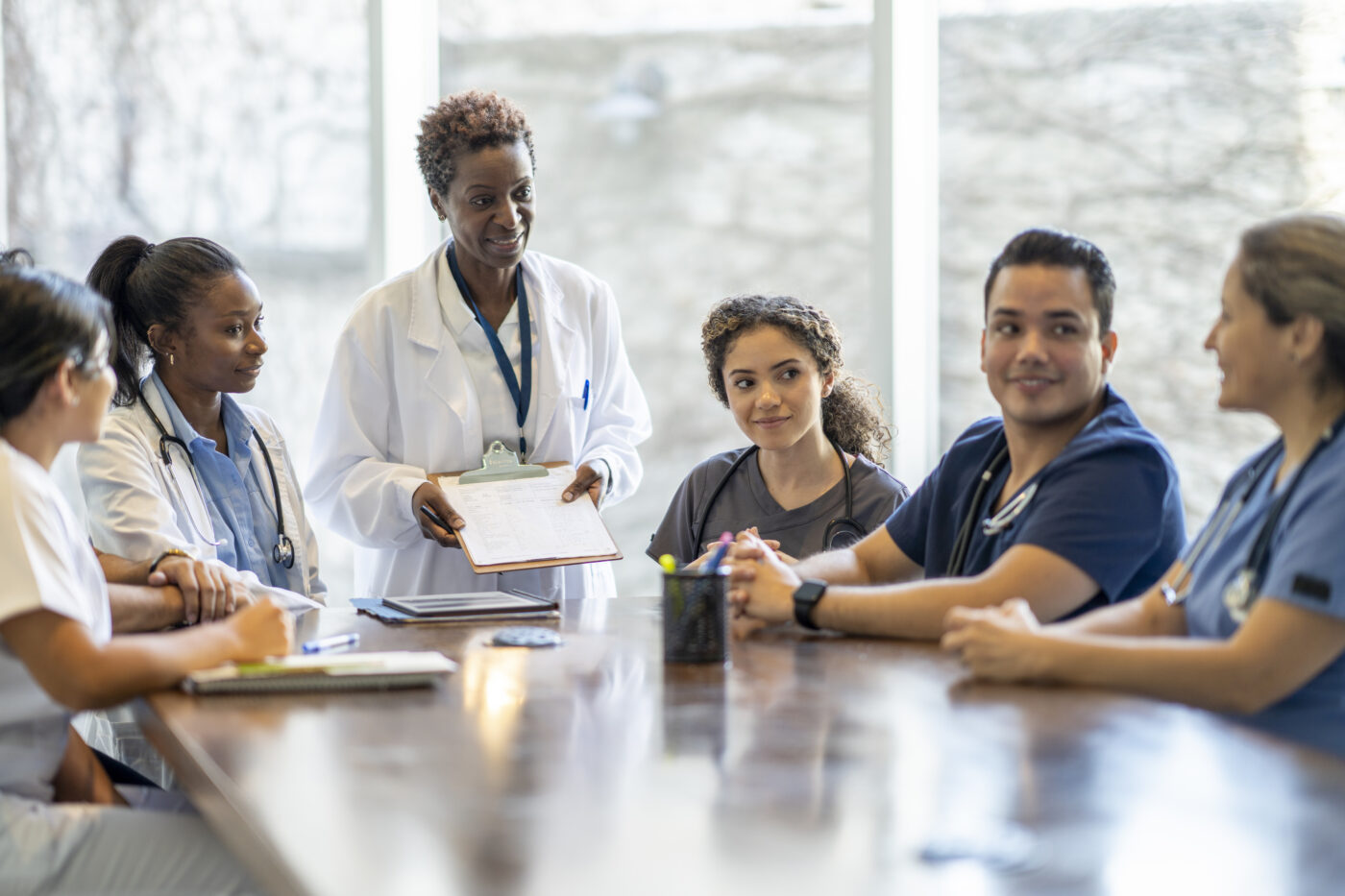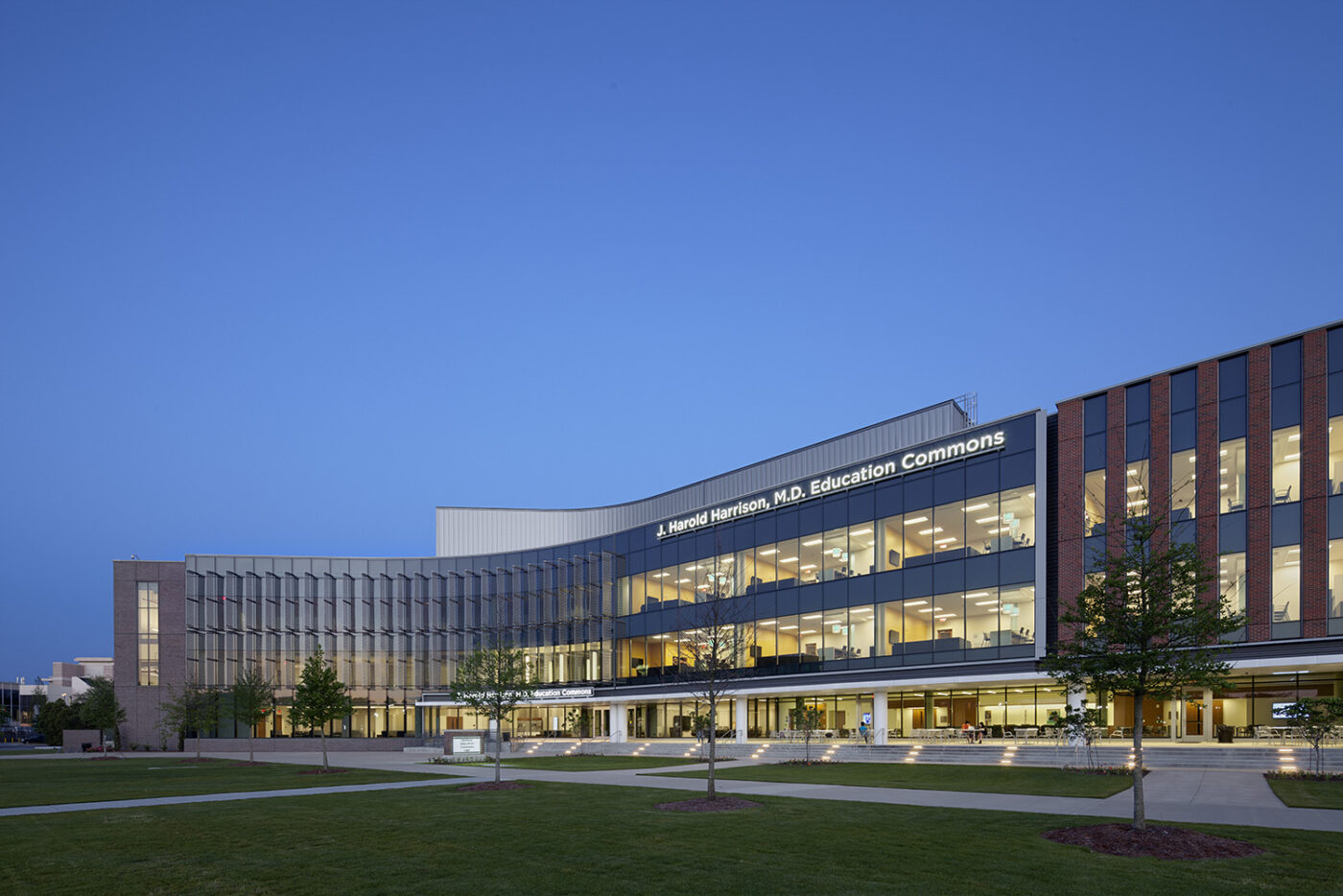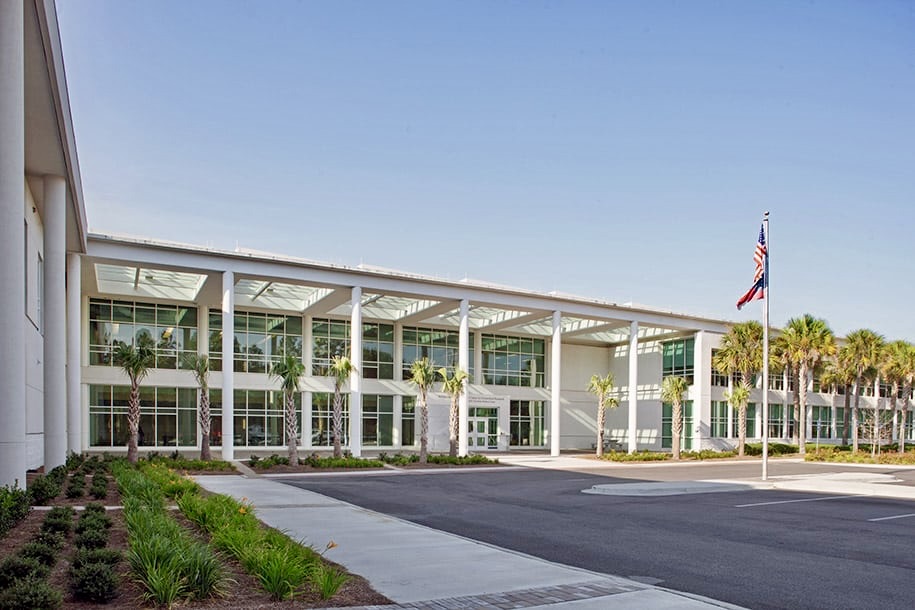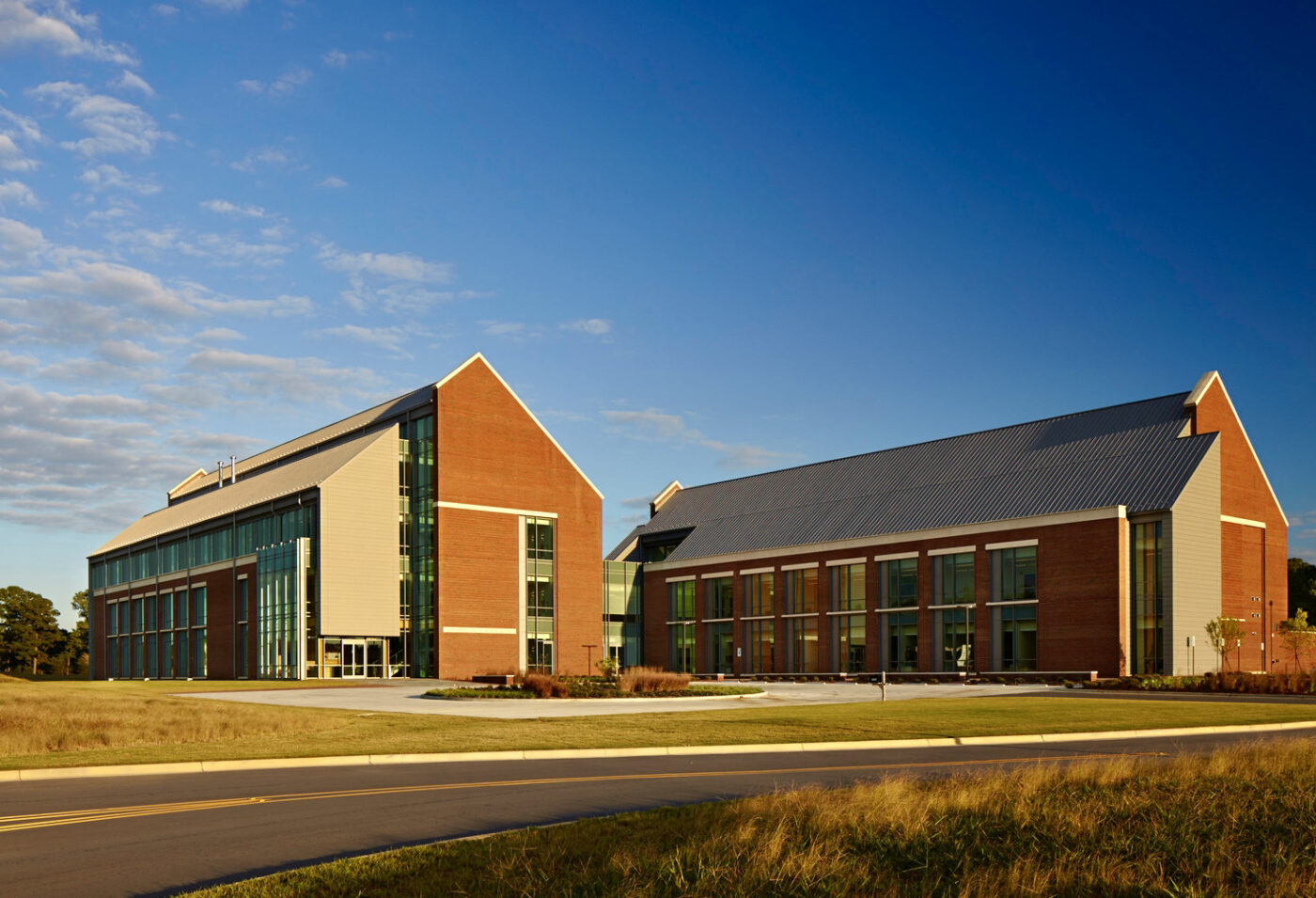If you’re planning to apply to medical schools and have searched online for “best medical schools near me,” there’s no doubt Morehouse School of Medicine has populated your screen. Morehouse School of Medicine (MSM) was developed at Morehouse College in 1975. Over the years, it has grown and risen to be a medical school that receives recognition for its accomplishments and successful graduates. Morehouse Medical School is located in Atlanta, Georgia. It is widely known as one of the top medical schools in Georgia.
The mission of Morehouse School of Medicine is to “Improve the health and well-being of individuals and communities; increase the diversity of the health professional and scientific workforce, and address primary health care through programs in education, research, and service with an emphasis on people of color and the underserved urban and rural populations in Georgia, the nation, and around the world.”
Be an Informed Applicant
International Medical Aid (IMA) exists to help aspiring medical professionals find the school of their dreams, apply, and matriculate. Our primary mission is to make this complicated application process as simple and stress-free as possible for the applicants we work with and to increase their chances of being accepted. These medical school guides are filled with information and tips to fulfill that mission.
Take a few minutes and read through this guide about getting into Morehouse School of Medicine, take notes, and feel free to ask questions. The information and direction found here will be extremely helpful to you throughout the application process and beyond. Our medical school guides are available to you right now for free.
If you haven’t decided which medical school is right for you, we offer these medical school guides for many other medical programs. If you’re interested in applying to a medical school near home, try searching “medical schools near me,” and then check back here to see if we have a guide for that particular school.
This guide was built specifically for Morehouse School of Medicine and should not be considered a guide for any other medical school.
Topics covered in this guide include:
- Why Morehouse School of Medicine?
- Medical Programs at Morehouse School of Medicine
- Facilities, Student Organizations, and More
- Selection Factors: What Morehouse School of Medicine Looks for in an Applicant
- Admissions Requirements for Morehouse School of Medicine
- Morehouse School of Medicine Acceptance Rate & Admissions Statistics
- Morehouse School of Medicine Tuition & Cost of Attendance
- AMCAS Primary Application & Morehouse School of Medicine Secondary Application
- Morehouse School of Medicine Secondary Application: Essay Prompts, Sample Answers, and Advice
- Morehouse School of Medicine Interview Process
- Medical School Admissions Consulting
- Voluntary Healthcare Internships Abroad
Personalized Help
There are thousands of websites online offering advice about getting into medical school, but one cannot overestimate the benefit of receiving one-on-one coaching throughout the process of applying to your top medical school choices. IMA’s medical school admissions consulting program was designed to make this process as simple and straightforward as possible for you, and to help you stand out amongst the waves of applicants, gaining favor in the eyes of the members of the admissions committee. We are here to provide quality guidance every step of the way, assisting with your applications, providing guidance about your essay responses, and preparing you for that very important interview. Contact us here if you have any questions.
Why Morehouse School of Medicine?
Morehouse School of Medicine has created a program that seamlessly marries foundational scientific education with hands-on clinical work and binds it together with the concept of compassionate care. This is why many aspiring doctors and medical professionals apply to Morehouse Medical School every year, hoping to be selected for admission. Their mission is to:
- Improve the health and well-being of individuals in Georgia communities.
- Increase the diversity of the health professional and scientific workforce.
- Address primary health care needs through programs in education, research, and service, with an emphasis on people of color and the underserved urban and rural populations in Georgia and the nation.
One of the ways Morehouse School of Medicine is working on social issues is by partnering with CommonSpirit Health for a 10-year, $100 million movement in order to focus on the issue of health equity and the underrepresentation of Black healthcare workers and clinicians. This partnership is going to accomplish really great things.
The school’s core values are:
- Excellence: Achieving the highest level of performance in all endeavors
- Service: Treating all people and communities with respect, compassion, and empathy
- Knowledge: Sharing our ideas, discoveries, methods, and skills to advance health equity
- Wisdom: Valuing the knowledge and experience of all individuals
- Integrity: Upholding the highest standards of ethical behavior, transparency, and accountability
- Innovation: Creating inspired solutions in science, service, and education
Morehouse School of Medicine has an excellent faculty and facilities to provide students with every tool they need to become trained and skilled medical professionals. It is located in the lively city of Atlanta, Georgia, and has been recognized near and far for its accomplishments. However, the real reason most students choose Morehouse Medical School instead of one of the other medical schools in Georgia has got to be the focus on compassionate care and medical equity for all.
Morehouse Medical School has a fantastic faculty team, with many nationally recognized brains in the room. Dr. Herman Taylor, for example, was awarded the “Black Enterprise America’s Leading Doctors Award” in 2008, and that was only the beginning. Another local hero, Dr. Barney Graham, was awarded the Albany Medical Center Prize in Medicine and Biomedical Research for his work in stem cell research and more in 2021.
Perhaps you’re asking, “Is Morehouse School of Medicine an HBCU (Historically Black College or University)? The answer is Yes. Morehouse Medical School is proud to be one of only a few HBCUs in the country. In fact, because of its many years and the long list of recognitions, some believe Morehouse School of Medicine is among the best HBCU medical schools in the country.
Morehouse School of Medicine Ranking
US News and World Report states that Morehouse School of Medicine is ranked:
- Unranked in Best Medical Schools (Research)
- Unranked in Best Medical Schools (Primary Care)
- #16 in Most Graduates Practicing in Primary Care Fields
- #59 in Most Graduates Practicing in Rural Areas
- #89 in Most Graduates Practicing in Medically Underserved Areas
Medical Programs at Morehouse School of Medicine
Faculty and committee members from Campbell University School of Osteopathic Medicine have worked together to develop a program that perfectly integrates academic learning and clinical experience. Graduates of the DO program walk out thoroughly prepared to treat patients holistically and in that osteopathic manner that sets them apart from other medical professionals.
Medical Doctor (MD) Program
Morehouse School of Medicine’s MD program is built around creating an environment that brings out the best in its students. The curriculum was developed to provide key foundational academic learning in science and also to fan the flames of passion these students have for becoming medical professionals who really help people – all people equally regardless of background, race, or ability to pay. The school has a strong standing in research and training lifelong learners who stay at the cutting edge of medical developments.
Some of the highlights of the Morehouse Medical School MD program include:
- Low student-faculty ratio for more personalized attention
- Nearly 70% of graduates matched in primary care specialties
- Nurturing and supportive faculty
Objectives of the MD Program at MSM
This information has been taken from Morehouse School of Medicine’s website:
“A mastery of the concepts necessary for the prevention, diagnosis, treatment, and management of common medical problems, specifically display knowledge of:
- The normal development, structure, and physiological function of the body, organ systems, tissues and cells, and their interrelationships and the molecular, biochemical, cellular, and physiological mechanisms that are important in maintaining the body’s homeostasis
- The biochemical, immunologic, pharmacologic, and microbiologic principles related to issues of disease, laboratory tests, and therapeutics and the various etiologies of diseases, the associated altered structure and function, and characteristic pathologic and laboratory manifestations
- Common epidemiologic and risk factors for diseases population health and the role and impact of psychological, behavioral, social, economic, and cultural factors on health and disease
- The ethical, legal, gender, psychological, social, interpersonal, sexual health, and economic issues that impact health and medical care
“Basic skills, including the ability to:
- Perform and record a complete and accurate history, sensitive to patient needs and the nature of the situation
- Perform and record an accurate and complete physical examination and mental status examination sensitive to patient needs and the nature of the situation
- Analyze a patient’s clinical presentation, linking to biomedical and health concepts, develop an appropriate diagnostic and therapeutic plan, appropriately using information resources, laboratory, and imaging testing
- Communicate effectively and respectfully with peers, faculty, colleagues, and other members of the health care team, understanding the role of consultations and referrals
- Communicate and interact with patients in an effective, respectful, and compassionate manner, including counseling them on risks, prevention, lifestyle, and therapy issues
- Obtain, analyze, and use the medical literature and other information resources to address medical questions and to sustain professional growth, and apply techniques of population health, including methods of analysis of the health and health problems of defined populations and development of interventions to improve the health of populations
“Throughout training, a candidate must demonstrate medical professionalism including ethical behavior, moral reasoning, honesty, integrity, dependability, and commitment to service and health equity.”
Morehouse Medical School’s curriculum is taught both in the classroom and in clinical settings. Service-learning and community service are also part of the program right from the beginning of year one. Classes are taught at the Hugh M. Gloster Basic Medical Sciences Building and clinical work is done at the affiliated teaching hospital, Grady Memorial Hospital, as well as other healthcare centers in partnership with MSM.
Year 1
The first year’s curriculum is called “Molecules, Structures, and Mechanisms” and is an integrated program designed to weave together classroom instruction, laboratory learning, and self-directed studies of biochemistry, physiology, and anatomy. In addition to learning the foundational knowledge of human biology, students will learn about community health and working in the fundamental world of medicine in this first year. It is broken down into four units which include:
- Biochemistry
- Histology and Cell Biology
- Embryology
- Physiology
- Gross Anatomy
- Neurobiology
- Normal Behavior
- Community Health
- Fundamentals of Medicine 1 (Clinical Preceptorship Component, Epidemiology and Biostatistics Component, Human Behavior)
Year 2
During the second year at Morehouse School of Medicine, students will take on important classes such as:
- Pathophysiology
- Nutrition
- Medical Microbiology and Immunology
- Medical Pharmacology and Toxicology
- Pathology
- Fundamentals of Medicine 2 (Human Values 2, Psychopathology Component)
Year 3
The third year of medical school at MSM starts in early August and continues until the end of July. It requires the full 12 months because there is so much to be accomplished, with clerkships beginning in:
- Internal Medicine
- Pediatrics
- Obstetrics and Gynecology
- Psychiatry
- Surgery
- Family Medicine & Rural Health
- Fundamentals of Medicine 3
Year 4
While the third year is long, the fourth year is a shorter, nine-month period. Students will spend their last year at Morehouse School of Medicine completing their Senior Selective: Subinternship course. Students must also complete at least six clinical electives.
Graduate Education in Biomedical Sciences (PhD and MS)
The PhD in Biomedical Sciences at Morehouse Medical School was designed to train students to become seekers of facts and truth, attaching medical research with passion and ferocity and taking leadership positions in academia, government, and corporate medical research work. Students in the program will work through a comprehensive curriculum (including classroom learning and laboratory rotations) and conclude with a dissertation guided by the school’s knowledgeable faculty.
The Master of Science in Biomedical Research (MSBR) program will include a full academic curriculum and a thesis. Many students of this program go on to seek out their doctoral degree in research or the health sciences. One of the benefits of this route is that it gives students the opportunity to explore what they want to do next while they obtain their graduate degree, prove how well they can do at their coursework, prepare for the MCAT if needed for their next step, and complete at research project in an area of interest under supervision.
The Master of Science in Biomedical Technology (MSBT) program is designed for those students who are seeking a career in some arena of biomedical technology. This program does not include a thesis, but it is very similar. Students will work on obtaining the knowledge and skill to invent and utilize new scientific equipment via design and research.
The Master of Science in Clinical Research (MSCR) program is a graduate program that is designed to train clinical faculty, senior residents, PhD and MD students, and all those who want to pursue a career in clinical research. Students will dive deep into the foundations of biostatistics, epidemiology, outcomes research, medical informatics, genetics and clinical trials, and more.
The Master of Science in Medical Sciences (MSMS) program takes two years to complete and does not include a thesis. The coursework students will undertake includes Biochemistry, Neurobiology, Pharmacology, Anatomy, Biomedical Genetics, Microbiology, Epidemiology, and more. There are also courses offered in critical thinking and problem-solving, which will greatly help students prepare for the MCAT exam. Students will not be preparing a thesis for this program, but they do complete an independent research project.
The Bachelor of Science/Master of Science in Neuroscience program exposes students to the vast world of neuroscience research. This program is open to sophomores and juniors and will work through all requirements for the Bachelor of Science degree and Master of Science degree. This is a unique opportunity and one that works well for those pursuing a future in medicine or medical research.
Master of Public Health
The Master of Public Health Education (MPHE) at Morehouse School of Medicine offers a curriculum that teaches public health theory that is derived from the school’s social mission. The goal of MSM has always been to increase the diversity of medical professionals in the workforce, to improve the health of individuals and communities in underserved regions of Georgia, and to focus on the healthcare needs of people of color in urban and rural regions of their state. This is what the MPHE program teaches and reinforces.
The goals of this program are:
- Goal 1 – Excellence in Leadership: Develop public health leaders who are influential in community-focused public health research and practice.
- Goal 2 – Excellent in Education: Foster critical thinking and academic rigor while providing a unique connection to community health research and practice.
- Goal 3 – Excellence in Research: Engage in research that addresses the needs of communities with an emphasis on underserved populations.
- Goal 4 – Excellence in Service: Create strong, sustainable partnerships that will improve the health of underserved communities.
Physician Assistant (PA)
Morehouse Medical School has a Physician Assistant (PA) program that is recognized around the country and internationally for its success rates and the accomplishments of graduates. The PA program is 28 months long and culminates in a Master of Science degree. The first 15 months are focused on the didactic phase of education, and the next 13-month cycle is focused on the clinical work.
The mission of the Morehouse PA program is to be at the cutting edge of innovation and advancement of health equity by handing the keys of power over to the next generation of physician assistants. The curriculum and faculty are as focused on teaching students to become lifelong learners. MSM is considered one of the finest PA schools in Georgia.
Facilities, Student Organizations, and More
Facilities
Core Facilities
- Center of Laboratory Animal Resources
- Research Centers in Minority Institutions
Clinical Core Facilities
- Noninvasive Cardiovascular and Hemodynamic Core Lab
- Analytic and Protein Profiling Laboratory
- Bionutrition Core
Nursing Core
- Recruitment/Retention Core
- Biostatistical and Data Management Core
- Research Subject Advocates and Data Safety Core
Affiliates
- Atlanta Medical Center
- Atlanta Veterans Administration Medical Center
- Children’s Healthcare of Atlanta at Hughes Spalding
- DeKalb Medical Center
- Emory University Hospital Midtown
- Georgia Division of Public Health
- Georgia Regional Hospital at Atlanta
- Grady Health
- South Fulton Medical Center
Student Organizations
- Aequitas
- American Medical Association (AMA
- American Medical Women’s Association (AMWA)
- Anesthesiology Interest Group
- Bioethics Club
- Black Men in White Coats
- Bridge MD
- Cardiology Interest Group
- Christian Medical and Dental Association (CMDA)
- Dermatology Interest Group
- Ear, Nose, and Throat Interest Group
- Elementary Pediatric Health Curriculum
- Emergency Medicine Interest Group
- Family Medicine Interest Group
- Gastroenterology Interest Group
- Global Health Interest Group
- Internal Medicine-Pediatrics Interest Group
- Interventional Radiology Interest Group
- Integrative Health and Medicine Interest Group
- Latino Medical Student Association
- Medicine in Media
- Military/VA Medicine Interest Group
- Morehouse School of Medicine and Health Policy Group
- MSM Chapter of the American Association of Neurological Surgeons
- MSM Environmental/Sustainability Interest Group
- MSM Lifestyle Medicine Interest Group
- MSM Student Hotspotting
- Muslim Student Organization at MSM
- OBGYN Interest Group (OBIG)
- Orthopedic Surgery Interest Group (OSIG)
- Pediatrics Interest Group
- Plastic Surgery Interest Group
- Prison Praxis Committee
Selection Factors: What Morehouse School of Medicine Looks for in an Applicant
The admissions committee at Morehouse School of Medicine is on the lookout for candidates who are compassionate and dedicated to serving people who need help the most. While MCAT scores and GPAs are undoubtedly important when it comes to your application being moved to the next level, they are not the only factors the admissions committee will consider. They look at applicants as unique individuals and long to get to know who they really are before deciding whether they’d be a good fit at Morehouse Medical School.
The following are some factors the admissions committee will look carefully at early on in the process::
- Completed Coursework
- Undergraduate GPA
- MCAT Results
- Clinical Experience
- Commitment to Diversity
- Professionalism
- Residency
- Citizenship
- Letters of Recommendation
Admissions Requirements for Morehouse School of Medicine
Qualified candidates of MSM will have completed their baccalaureate degree or equivalent from a United States college or university. Required prerequisite coursework is important because it will help the committee see what your aptitude is towards the sciences. It also shows the committee that you are dedicated to a career in medicine and that you have a foundation in the sciences that are required for first year medical school. The coursework should be taken in person, rather than online.
Applicants must have taken the MCAT within the past three years.
Minimum GPA and MCAT Requirements for Morehouse Medical School Medicine
The minimum MCAT score for eligible applicants to Morehouse Medical School is 495, and the average MCAT score is 504.
The average GPA for Morehouse Medical School applicants is 3.63 cumulative and 3.53 GPA in science.
Volunteer Service and Clinical Experience
While there is no minimum or set amount of time that students must spend in volunteer or clinical work, Morehouse School of Medicine expects applicants to have had some experience with shadowing a physician. One of the fantastic options in that regard is IMA’s pre-med study abroad program. Students get to embark on an amazing adventure that takes them to foreign countries to serve people with vastly different needs than those in the United States. They learn from top-notch medical professionals. Participation in IMA’s pre-med study abroad program will bring you unique clinical experience opportunities and you’ll be immersed in some real cultural diversity. Learn more about our pre-med shadowing study abroad program here.
You can also demonstrate volunteer or clinical experience by volunteering at a doctor’s office, healthcare clinic, vaccination program, medical research opportunity, and more of this nature. There are always opportunities, but you have to be diligent to go out and get them. List every medical experience you’ve had on your application.
Morehouse Medical School Letters of Recommendation
Letters of Recommendation should be submitted via AMCAS (American Medical College Application Service). Applicants should submit three letters of recommendation from individuals from the science faculty who are familiar with your work. Additional letters will also be accepted. In lieu of the three letters, applicants may present a letter of recommendation (packet) from a Pre-Health Advisor or committee. This will meet all letter requirements.
Required & Recommended Coursework at Morehouse Medical School
The following prerequisite coursework is required:
- Biology with Laboratory (1 year)
- General Chemistry with Laboratory (1 year)
- Organic Chemistry with Laboratory (1 year)
- Physics with Laboratory (1 year)
- College-level Mathematics (1 year)
- English including composition (1 year)
Does Morehouse Medical School Require the CASPer Exam?
Morehouse Medical School does not require the CASPer evaluation.
Morehouse School of Medicine Acceptance Rate & Admissions Statistics
Morehouse School of Medicine admissions committee received 6,648 applications. Out of those, 462 were interviewed, and only 105 new students matriculated. That means the acceptance rate is approximately 1.58%, which makes it one of the most challenging schools to gain acceptance to. Around 87% of new students are from the state of Georgia, and about 12% are out-of-state.
*The acceptance rate is based on the percentage of applicants who enroll. There are other factors that affect rates.
Morehouse Medical School’s 2023 Class Profile
The following are some statistics regarding the class of 2023:
- Class Size: 105
- Average MCAT: 504
- Average Science GPA: 3.63
- Georgia Residents: 87%
- Average Age: 24
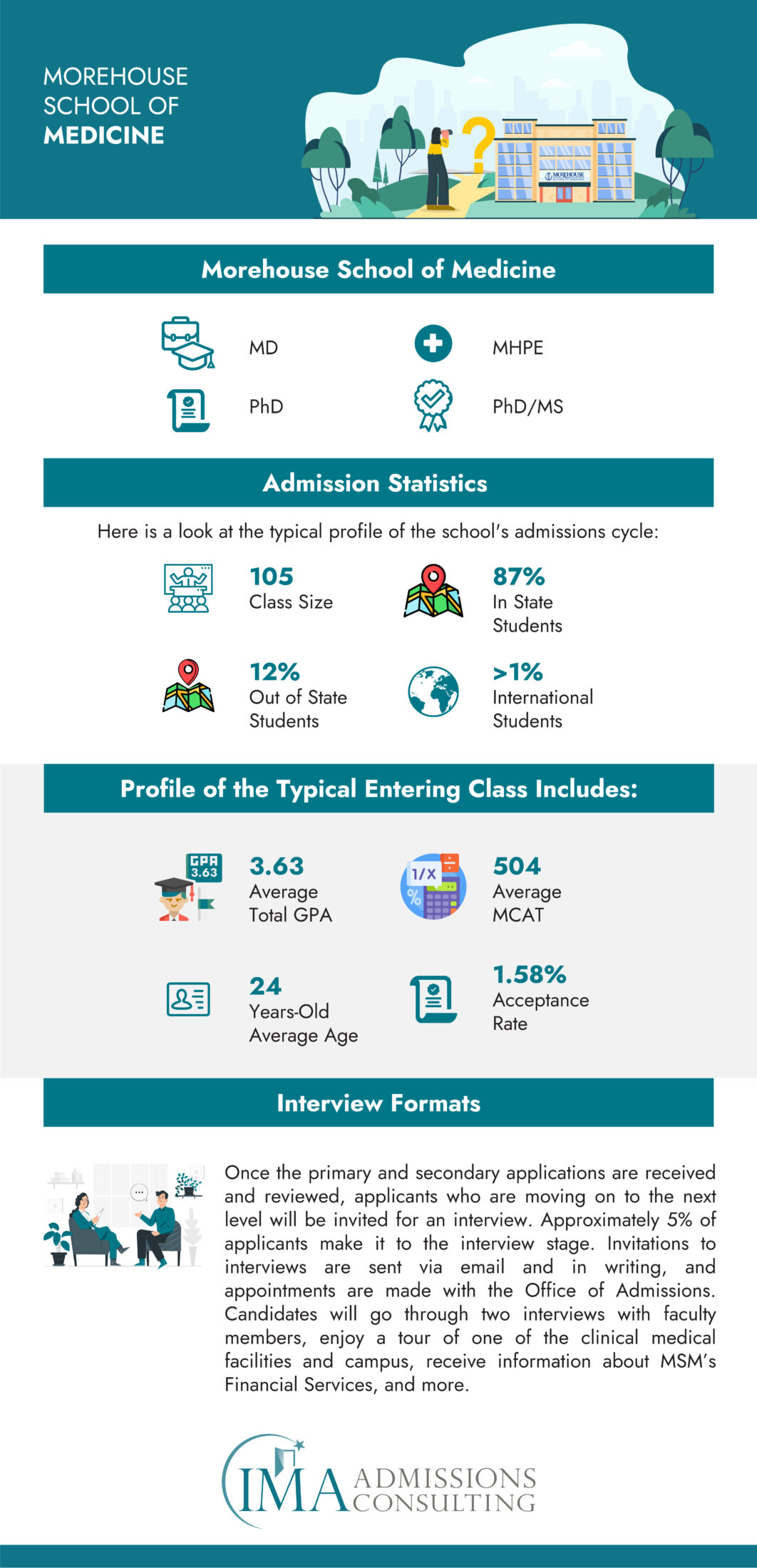
Morehouse School of Medicine Tuition & Cost of Attendance
These tuition and fees are based on the Morehouse School of Medicine’s 2022-2023 academic year. Fees are subject to change.
Year 1:
- $45,208 Tuition
- $3219 Books and Supplies
- $35,471 Room and Board, Travel, and Personal Expenses
- $9,527 Fees
$93,425 Total
Year 2:
- $44,703 Tuition
- $7,264 Books and Supplies
- $32,794 Room and Board, Travel, and Personal Expenses
- $8,122 Fees
$92,883 Total
Year 3:
- $44,048 Tuition
- $4,878 Books and Supplies
- $38,148 Room and Board, Travel, and Personal Expenses
- $8,094 Fees
$95,168 Total
Year 4:
- $44,048 Tuition
- $3,490 Books and Supplies
- $36,971 Room and Board, Travel, and Personal Expenses
- $6,430 Fees
$90,939 Total
Learning about the inner workings of the financial aspect of medical school is important, as is taking advantage of financial aid support when needed. For more information on the costs of attending medical school in the United States, check out our Medical School Database, where we provide guidance and helpful information.
AMCAS Primary Application & Morehouse School of Medicine Secondary Application
The Morehouse School of Medicine admissions committee partners with the American Medical College Application Service (ACMAS) to collect their primary applications. This program helps to sort through the applications, separating those who are clearly eligible from those who are not, and passing the qualifiers on to the committee.
Anyone applying to Morehouse Medical School must submit their primary application and letters of recommendation through AMCAS.
Applicants who meet the initial eligibility guidelines will be invited to submit a secondary application directly through Morehouse Medical School. There is a $175 fee for submitting this application, but fee waivers are available based upon need.
Those who successfully make it through these first two stages will be invited to interview.
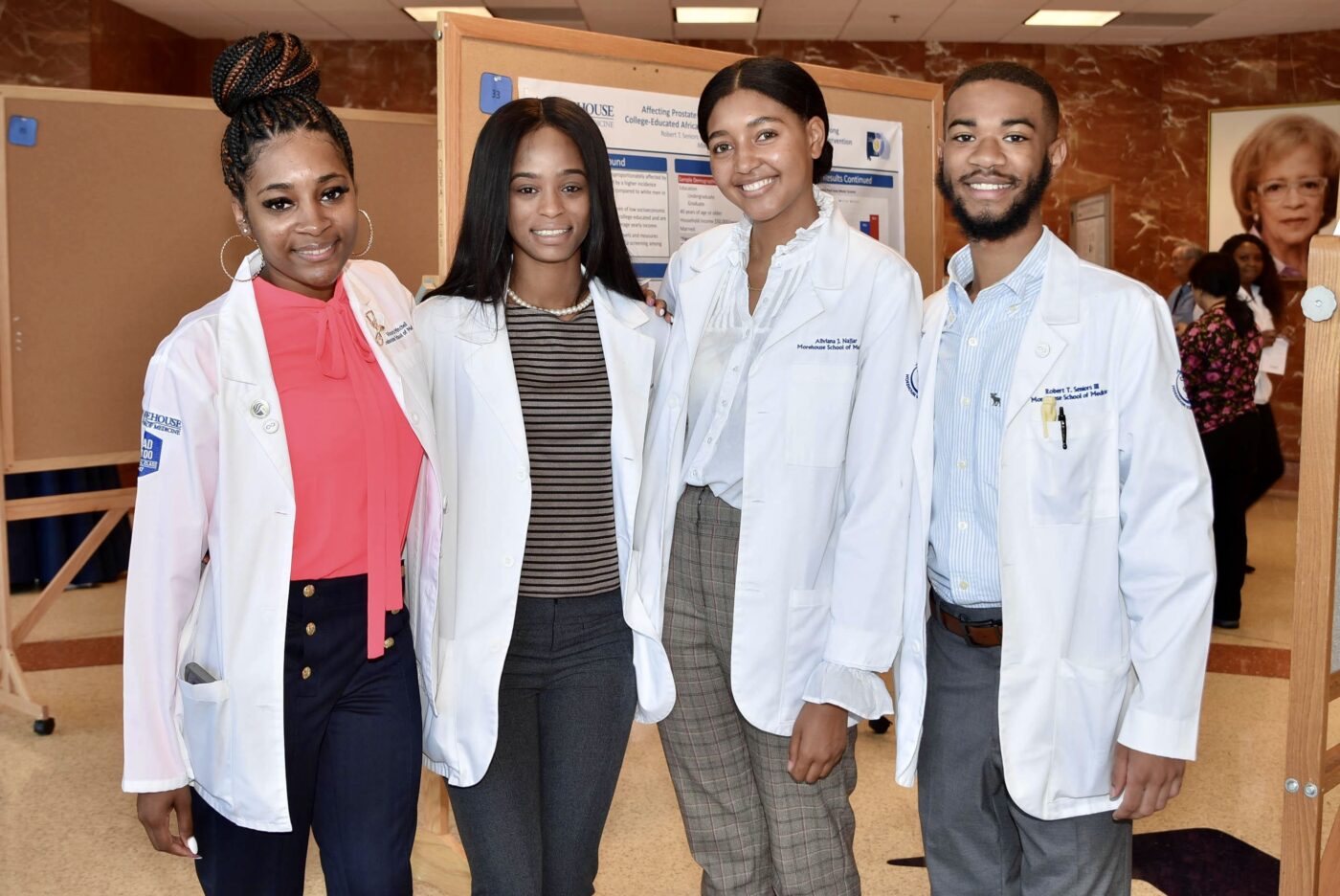
Morehouse School of Medicine Secondary Application: Essay Prompts, Sample Answers, and Advice
Below are the secondary essay questions for Morehouse School of Medicine for the 2022-2023 application cycle.
Essay #1 – What percent of your professional time do you anticipate devoting to: 1. Administration, 2. Teaching, 3. Patient Care, 4. Research? (999 characters)
This question should require some thoughtful consideration. Don’t be quick to declare your answer before considering all of the aspects of being a healthcare provider. Their days are not all about treating patients. Rather, there are many other aspects to running your own practice, so take that into consideration before you answer.
Sample Answer:
My vision for the breakdown of my professional time would be spending 65% of my time in Patient Care, 15% in Teaching, 15% in Research, and 5% in Administration. While I love the idea of teaching and would want to take on interns and medical students whenever possible, I feel led to patient care.
If research opportunities are available, I’d love to contribute to the future healing of health concerns via research. Still, working with my patients face-to-face is what I’d want to spend the majority of my time doing. On the other end of the spectrum, I don’t see myself involved much in administration, except for times when my team needs me. I’d always want to be readily available to roll up my sleeves and help.
It has been my passion to be the kind of doctor who gets to know his patients and remembers their names. I want to spend time really listening to the people I serve, so that I can provide the best medical care possible. A good doctor is one who invests in each and every patient.
Essay #2 – Briefly explain the reasons for your selections in the Perceptions of Your Medical Career section. (999 characters)
This prompt is tied into the Perceptions of Your Medical Career section of the application where they ask you to identify one medical focus that you may choose to devote the majority of your professional career to: Primary Care, Other Specialty Care, Research/Teaching, Undecided.
It’s perfectly fine if you don’t know which field of medicine you want to go into yet, but the admissions committee wants to see that you are motivated, have a plan, and are looking to your future career. Your answer may change over time, and that’s okay. Just do your best to be thoughtful and give solid reasons for your selection.
Essay #3 – Type a brief statement setting forth the key motivational factors in your decision to apply to Morehouse School of Medicine and any information about yourself you feel would be of interest to the Committee of Admissions in consideration of your application. (9999 characters)
This should be your favorite of the essay prompts because this is your opportunity to introduce your authentic self to the admissions committee of Morehouse Medical School. The admissions committee wants to get to know you on a personal level. They are looking for candidates who are unique, diverse, passionate, and committed to integrity, service, and social equality. So help the admissions committee remember you by sharing something personal and real about you. What led you to this fine establishment and what is something the admissions committee should really know about you?
Morehouse School of Medicine Interview Process
Candidates fortunate enough to be invited to an interview at Morehouse School of Medicine will be notified via email when their interview day is scheduled. Once the primary and secondary applications are reviewed, those moving on to the next level will be invited for an interview. Only around 5% of applicants make it to the interview stage. Invitations to interviews are sent via email and in writing, and appointments are made with the Office of Admissions.
Candidates will go through two interviews with faculty members, enjoy a tour of one of the clinical medical facilities and campus, receive information about MSM’s Financial Services, and more
There are always going to be certain characteristics of your personality and interview style that the admissions committee are going to be looking for. They particularly like to interview an applicant who exhibits:
- Interpersonal Skills
- Self-Awareness
- Self-Confidence
- Passion for Medicine
- Desire to Help People
- Commitment to Social Justice
- Knowledge about Morehouse School of Medicine
Preparing for an interview can be stressful and overwhelming. Applicants usually find it very helpful to acquire personalized coaching and even a mock interview through our medical school admissions consulting services.
Medical School Admissions Consulting
There’s no doubt that applying for medical school is stressful and challenging. The Morehouse School of Medicine acceptance rate is very low, which means it is much harder to matriculate to this school. This is true no matter who you are or where you come from. The process is daunting, from the first application to the interview process. However, while it’s a stressful undertaking, gaining acceptance to one of the schools of your choice and being able to earn your degree so that you may one day practice osteopathic medicine is so worth it.
At International Medical Aid (IMA), we aim to make this process as easy and stress-free as possible. Our medical school admissions consulting program leads you through the whole process from start to finish.
You may be the type of person who interviews well naturally or not. Either way, our experts can and will help you prepare thoroughly for one of the most important interviews of your life. We will walk you through the process, offer expert advice, and even conduct mock interviews to make sure you are as ready as possible.
Take a moment to schedule a free consultation with one of our experts here.
Voluntary Healthcare Internships Abroad
One of IMA’s most popular programs is our pre-med shadowing study abroad program, which takes students around the world in an effort to expose them to healthcare conditions in underserved parts of the world. The experience is priceless, as students come into contact with medical issues that are unique to the living conditions in their country.
Our pre-med study abroad program was designed specifically for pre-medical and gap year students with the vision of preparing them more than ever before for their future as a humanistic, global citizen physicians. There is nothing in the world like participating in one of those pre-medicine internships in Peru or Africa.
Please take a few minutes to explore the benefits of our program on our website and reach out if you have any questions.
Best of Luck!
We at IMA wish you nothing but the best of luck as you pursue your dream of studying medicine at Morehouse School of Medicine. We hope that our efforts here to help prepare you for the application process will pay off for you and land you an acceptance letter. This guide is a valuable tool to help you navigate the complex system so that you have the best chances possible.
If you’d like to explore our medical school admissions consulting program, please feel free to contact us, and we will get you the support you need to feel confident.
Whether you looked for medical schools outside of Georgia or searched for medical schools near me, MSM is a wonderful choice. We hope our guide helps you achieve your goal of attending this fine institution.
- Medical College of Georgia at Augusta University
- Mercer University School of Medicine (MUSM)
- Campbell University School of Osteopathic Medicine (CUSOM)
- ECU Brody School of Medicine
- Edward Via College of Osteopathic Medicine (VCOM)
- University of South Carolina Medical School
- Medical University of South Carolina (MUSC)
- Lewis Katz School of Medicine at Temple University
- Philadelphia College of Osteopathic Medicine (PCOM)
- Geisinger Commonwealth School of Medicine (GCSOM)
- Penn State Medical School
- CUNY School of Medicine
- SUNY Downstate Medical School
- NYIT College of Osteopathic Medicine
- NYU Long Island School of Medicine
- TOURO College of Osteopathic Medicine
- Albany Medical College
- Norton College of Medicine at Upstate Medical University
- Jacobs School of Medicine at the University at Buffalo
- Hofstra Zucker School of Medicine
- Weill Medical College of Cornell University
- University of Rochester Medical School
- Icahn School of Medicine at Mount Sinai
- Renaissance School of Medicine at Stony Brook University
- Albert Einstein College of Medicine
- Ohio University Heritage College of Osteopathic Medicine
- Northeast Ohio Medical University (NEOMED)
- University of Cincinnati College of Medicine
- University of Toledo College of Medicine
- Wright State University Boonshoft School of Medicine
- Ohio State University College of Medicine
- Rowan University School of Osteopathic Medicine
- Hackensack Meridian School of Medicine (HMSOM)
- Rutgers New Jersey Medical School (NJMS)
- Rutgers Robert Wood Johnson Medical School
- Cooper Medical School of Rowan University (CMSRU)
- A.T. Still University Kirksville College of Osteopathic Medicine
- Saint Louis University School of Medicine
- University of Missouri Medical School
- Kansas City University (KCU)
- UMKC School of Medicine
- New York Medical College
- University of Pittsburgh School of Medicine
- University of Wisconsin Medical School
- VCU School of Medicine
- University of Maryland School of Medicine
- Case Western Medical School
- University of North Carolina Medical School
- University of Florida Medical School
- Emory University School of Medicine
- Boston University College of Medicine
- California University of Science and Medicine
- UC San Diego Medical School
- California Northstate University College of Medicine
- Touro University of California
- CHSU College of Osteopathic Medicine
- UC Davis School of Medicine
- Harvard Medical School
- UC Riverside School of Medicine
- USC Keck School of Medicine
- UT Southwestern Medical School
- Long School of Medicine at UT Health San Antonio
- University of the Incarnate Word School of Osteopathic Medicine
- UT Austin’s Dell Medical School
- UTMB School of Medicine
- McGovern Medical School at UT Health
- Johns Hopkins School of Medicine
- McGovern Medical School at UT Health
- The University of Texas Rio Grande Valley School of Medicine
- UNT Texas College of Osteopathic Medicine
- University of Houston College of Medicine
- Texas A&M College of Medicine
- Johns Hopkins Medical School
- Baylor College of Medicine
- George Washington University School of Medicine
- Vanderbilt University School of Medicine
- St. George’s University School of Medicine
- Lake Erie College of Osteopathic Medicine (in Pennsylvania)
- Sidney Kimmel Medical College at Thomas Jefferson University
- Wake Forest University School of Medicine
- Western University of Health Sciences (in California)
- Drexel University College of Medicine
- Stritch School of Medicine at Loyola University Chicago
- Georgetown University School of Medicine
- Yale School of Medicine
- Perelman School of Medicine
- UCLA Medical School
- NYU Medical School
- Washington University School of Medicine
- Brown Medical School
Feel free to contact us if you have questions about the application process, our medical guides, our pre-med shadowing study abroad program, or our Medical School Admissions Consulting services.


